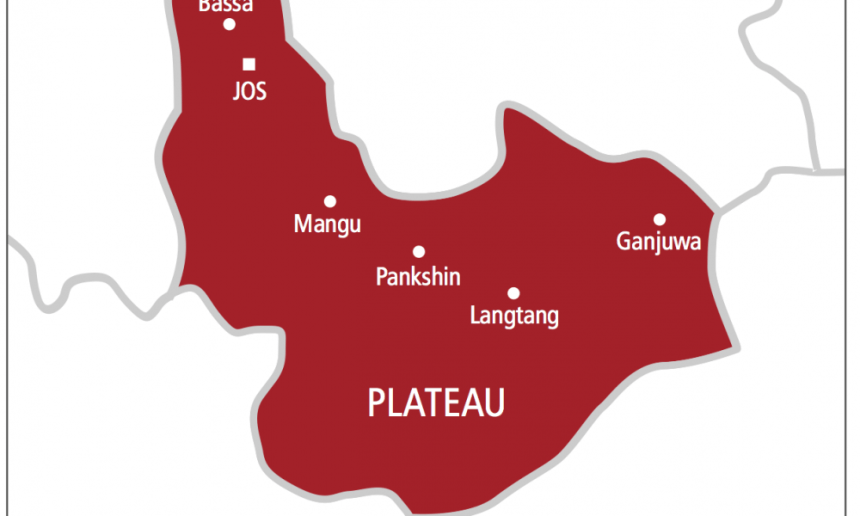Penultimate Saturday, August 14, suspected Irigwe militia attacked a convoy of about 90 Fulani men in five hummer buses, around Rukuba Road area of Jos, capital of Plateau State. Using machetes, daggers and other dangerous weapons, according to initial news reports, the militia killed 25 of the travellers and injured 14 others. The victims were Fulani travellers on their way back to Ondo State after attending a religious programme in Bauchi State.
By Monday, the death toll had reportedly reached 28, while a further 36 persons had been rescued, primarily by the men of the Operation Safe Haven, a special taskforce of the Nigerian Army, which had been working in the area for years, which had intervened to rescue some of the victims during the attacks. About 10 persons are still unaccounted for from the incident.
The Plateau state government swiftly imposed a dusk to dawn curfew on Jos North, Jos South and Bassa local government areas of the state. This seemed to have helped bring relative calm to the state, although news reports of pockets of attacks and killings of innocent persons, including several students of the University of Jos, have regrettably trailed the sad event over the past week.
These recent killings in the state were most shocking in its barbarity, not just because of the gory nature of the attacks in broad daylight, but also because the victims were not locals but hapless travellers who were targeted for their faith or ethnicity—or both. This was, therefore, a hate crime.
Still, the incident was part of the unending cycle of tit for tat violence that has engulfed the state of late—indeed, for the past two decades. In early August, newspapers and other media reported an attack by gunmen on Nche-Tahu community in the Bassa Local Government of the state in which three persons were killed. Similarly, on the night of April 16, gunmen killed six persons in Wereng village of Riyom Local Council of the state. Even the attackers in the latest event were themselves reportedly said to be on a funeral procession for members of their community who had been killed only two weeks earlier by suspected herdsmen around the same area.
We strongly condemn all of these attacks and are saddened by the deliberate targeting of travellers passing through Jos city who had no hand in the state’s local conflicts whatsoever. We commiserate with the victims and their families and urge both the state and the federal governments to do all they could in rescuing those still missing. We are equally saddened that all the recent attacks are clear indications that Plateau State is sliding back to the senseless ethno-religious bloodletting of the not-too-distant past, and the peace the state had enjoyed since 2015 is gradually being rolled back. This must not be allowed to happen.
Between 2001 and 2011, possibly 7000 persons were killed in more than a dozen instances of communal violence in the state, according to a report by the Geneva Declaration on Armed Violence and Development, a diplomatic initiative aimed at addressing the interrelations between armed violence and development in 2011. Human Rights Watch similarly reported hundreds more persons killed in similar outbursts of violence across the state between 2011 and 2013.
We do not wish to see a return to those dark years of endless neighbour-on-neighbour violence in Plateau state. Therefore, while we commend the Plateau State Government for the five years of peace that it had achieved in the state, we urge the governor, Simon Lalong to review and do more of whatever strategies that he had used to bring about peace in the state since 2015. His position as the Chairman of the Northern Governors Forum is particularly instructive for times like this.
We also observe that President Buhari, through his Senior Special Assistant, Media and Publicity, Garba Shehu had strongly condemned the attacks. The President described the attacks as “unacceptable, heinous, and stand in complete contradiction to the teachings of the great religions of our nation”. This is rightly so. However, we have heard such strongly worded condemnations from Nigerian leaders before. We are not convinced that they are enough to break the chain of recurrent violence in the state, or elsewhere in the country.
We urge the president to walk his talk by making sure that all those responsible for all the recent killings in the state are brought to face the full force of the law. So far, dozens of suspects have been arrested. They must be tried in open court, and punished accordingly if found guilty. There is near consensus across the state, and beyond, that so long as perpetrators are not made to face the full wrath of the law, such attacks will know no end.
Above all, we appeal to the communities in the state to embrace peace and seek the path of genuine reconciliation. For intercommunal conflicts, all are losers.

 Join Daily Trust WhatsApp Community For Quick Access To News and Happenings Around You.
Join Daily Trust WhatsApp Community For Quick Access To News and Happenings Around You.


